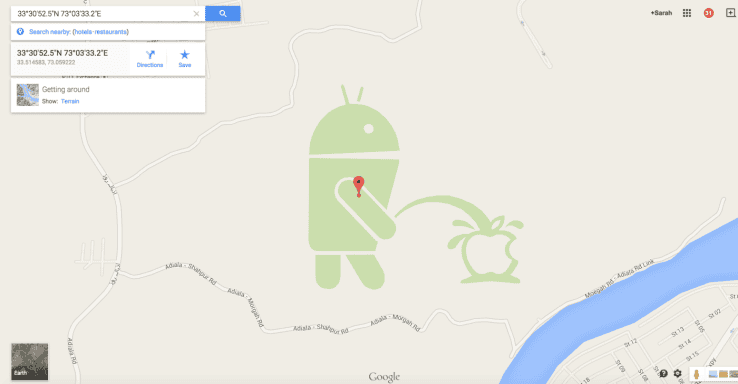After a series of spam attacks and other obscene edits, Google has temporarily taken its crowd sourced map editing tool Map Maker offline. The online tool has, for years, allowed those in countries without detailed maps to be able to add various details and points of interest to Google Maps, like new roads or parks, for example.
But in more recent months, the tool has been instead used by some to upload inappropriate content to Google Maps – like the recent prank which added an image of the Android mascot urinating on the Apple logo, for instance.
Another prank saw a user adding a business called “Edwards Snow Den” located right in the White House by exploiting a loophole that allowed you to change a business listing’s address after its creation.
In April, Google said it was working to improve its spam detection system for Map Maker. But that, apparently, wasn’t enough.
Now Google is shutting down access to the system entirely starting on Tuesday May 12, according to a new message that pops up if you try to make an edit on Google Maps using Map Maker. The message links to a more lengthy explanation in the Google Map Maker forum, where Product Manager Pavithra Kanakarajan confirms that the decision to shut the project down for the time being is directly related to the “escalated attacks to spam Google Maps over the past few months.”

She says that this most recent attack (referring to the image of the Android urinating), was “particularly troubling and unfortunate,” and that Google has now suspended auto-approval and user moderation across the globe. This will remain the case until Google figures out ways to add “more intelligent mechanisms to prevent such incidents,” Kanakarajan adds.
Currently, all edits are going through a manual review process, but obviously, that’s not a scalable solution for a platform as large as Google Maps. With Map Maker, users in over 200 countries worldwide have been able to add and update map information for Google Maps’ and Google Earth’s millions of users.
The article originally appeared at Tech Crunch.














